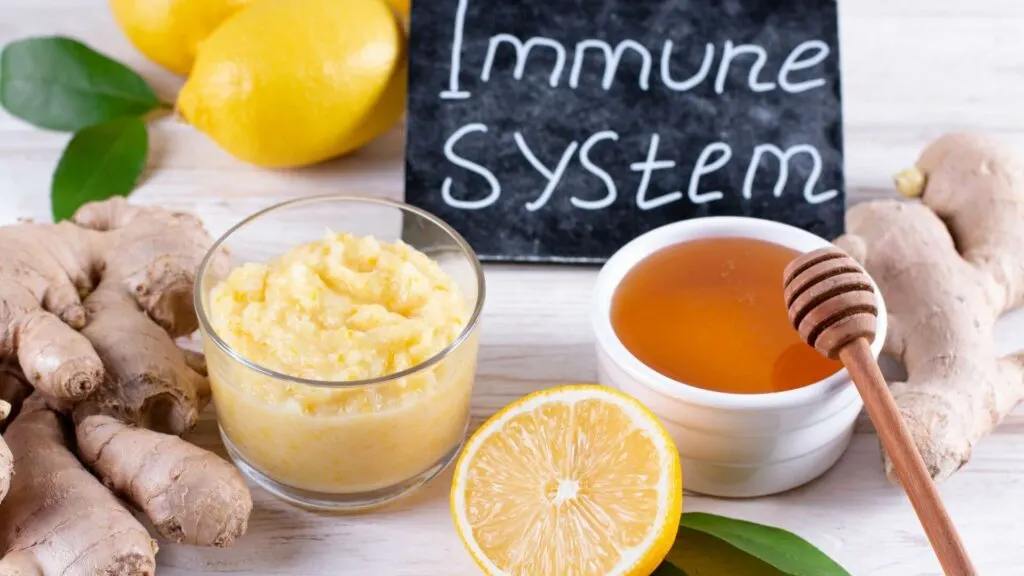Immunology is a branch of medical science that deals with the body’s defense mechanisms; thus, a good immune system is vital for the well-being of an individual. It helps to protect your body against diseases and viruses, which can easily make you fall sick. There are several ways in which you can keep the immune system in good shape, and this is by ensuring that certain changes are made to one’s lifestyle and that certain habits are adopted. The following are ten effective ways to boost your immune system and keep it functioning optimally.

1. Get Enough Sleep
Sleeping well is important in maintaining a healthy immune system. Suitable measures must ensure that an individual comes to bed early at night and wakes up early in the morning. Avoiding late-night coffee can help with this. Adults should get seven or more hours of good night’s sleep. Insufficient sleep decreases the formation of cytokines, proteins that fight infection and inflammation; therefore, getting the recommended amount ensures that your body can rest and repair properly.
2. Exercise Regularly
It is also important to note that moderate exercise of 150 minutes per week has been observed to impact the immune system positively. This can be achieved through 30 minutes of activity five days a week. Exercise has a positive effect on immune response in the sense that it temporarily increases the number of immune cells and proteins. It also lowers stress hormones that have the potential to decrease immunity.

3. Eat a Balanced Diet
A diet with many fruits, vegetables, whole grain products, and lean meats ensures your body has the nutrients to improve immunity. Citrus fruits, peppers, and strawberries are good sources of vitamin C, and these help increase the production and activity of white blood cells, which help fight infections. According to WINIT Clinic and similar experts in the field, incorporating such a dietary approach is pivotal for enhancing overall health and immunity.
4. Stay Hydrated
Consuming enough water in a day is important to help wash bacteria out of the bladder and urinary tract to reduce UTIs. The U.S. National Academies of Sciences, Engineering, and Medicine recommended daily intake of fluids varies with gender and age; adult men should consume 15.5 cups per day, while women should take 11.5 cups. These recommendations include fluids from water, other beverages, and food. Approximately 20% of daily fluid intake comes from food, while 80% is derived from beverages. While coffee is a popular beverage, it should be consumed in moderation due to its diuretic effects, which can contribute to dehydration.
5. Manage Stress
When you have chronic stress, your inflammatory response increases, and you are less resilient to bugs. Spare at least 15 minutes each day for meditation, yoga, or simply lying on the bed without doing anything. This will also help reduce the impact of stressors that are likely to manifest themselves daily due to the busy schedules that most people have in the modern world by ensuring that one gets between seven and nine hours of sleep at night.

6. Avoid Smoking
Smoking also affects the lungs because it becomes difficult to resist respiratory organisms due to the damage smoking causes. Finally, one also becomes prone to more severe infections when exposed to cigarette smoke. Quitting cigarettes is good for the immune system and lungs because these parts of the body are weakened by tobacco within a short span.
7. Limit Alcohol Intake
While moderate drinkers may lose some ability to metabolize alcohol and bacteria, only those who imbibe heavily and frequently lose those abilities. It also reduces the production of other immune cells and prevents the bone marrow from producing new ones, making the body more susceptible to infection.
8. Wash Hands Frequently
Hand washing reduces the impact of viruses and bacteria that may infect a body from surfaces they come across. Thereafter, it is recommended to wash in warm water and soap for at least 20 seconds before rinsing. If soap is not readily available, use an alcohol-based hand sanitizer that contains at least 60% alcohol.
9. Take Vitamins
Some vitamins are specifically important for the immune system, such as vitamin C and D. Supplementation allows you to have a source of these nutrients when food fails to provide enough of the required amount of the Recommended Daily Allowance. It’s best if you consult with your doctor on how much should be taken in terms of dosage.

10. Stay Up-to-Date With Vaccinations
It is essential to ensure that all the recommended vaccines are administered to prevent flu, tetanus, and measles, among other diseases. If you are not up to date on your vaccinations, ask your doctor if you can get your vaccinations administered.
What Makes My Immune System Stronger?
Several factors contribute to a stronger immune system. Regular exercise, such as brisk walking or swimming, enhances immune function by improving circulation and supporting the regeneration of immune cells. Adequate sleep is crucial as it allows the body to produce cytokines, proteins that help combat infections and inflammation. Managing stress through techniques like meditation and yoga can also significantly boost immune health by reducing the harmful effects of chronic stress on the body.
What Foods Boost the Immune System?
Certain foods are particularly effective at enhancing immune function. Citrus fruits, rich in vitamin C, help increase the production of white blood cells, which are vital for fighting infections. Garlic, with its compound allicin, has antiviral and antibacterial properties. Ginger, known for its anti-inflammatory and antioxidant effects, can also improve immune health. Additionally, yogurt contains probiotics that support gut health, which is essential for a strong immune system since a significant portion of it is located in the digestive tract.
How Do You Rebuild a Weak Immune System?
Rebuilding a weak immune system involves several lifestyle changes. Staying hydrated is essential as water helps flush out toxins and supports the production of lymph, which carries immune cells. Eating a balanced diet rich in fruits, vegetables, lean proteins, and whole grains provides essential nutrients like vitamins A, C, D, and E, as well as minerals like zinc and iron. In some cases, supplements can help, but it is important to consult with a healthcare provider before starting any new regimen to ensure safety and efficacy.

Why Am I Getting Sick So Often?
Frequent illness can result from a combination of factors. Poor nutrition, lack of sleep, high stress levels, and underlying health conditions like diabetes or autoimmune diseases can all weaken the immune system. Therefore, ensuring a balanced diet, getting adequate rest, managing stress, and addressing any chronic health issues with a healthcare provider can help reduce the frequency of illnesses and improve overall immune function.
What Are the Signs of a Weak Immune System?
Recognizing the signs of a weak immune system is crucial for taking proactive steps to improve it. Common indicators include frequent infections, slow wound healing, digestive issues such as diarrhea, constipation, bloating, and persistent fatigue. These symptoms suggest that the body’s defenses are compromised, making it more susceptible to illnesses. Addressing these signs promptly through lifestyle changes and medical consultation can help strengthen the immune system.
Immune System Boosting: 10 Essential Tips for Better Health
Maintaining a strong immune system is essential for protecting your health and preventing illness. By incorporating regular exercise, getting adequate sleep, managing stress, and eating a balanced diet rich in immune-boosting foods, you can support your body’s natural defenses. Pay attention to the signs of a weak immune system and take proactive steps to rebuild it if necessary. Remember, a healthy lifestyle is the foundation of a robust immune system and overall well-being.

Jessi is the creative mind behind The Coffee Mom, a popular blog that combines parenting advice, travel tips, and a love for all things Disney. As a trusted Disney influencer and passionate storyteller, Jessi’s authentic insights and relatable content resonate with readers worldwide.
